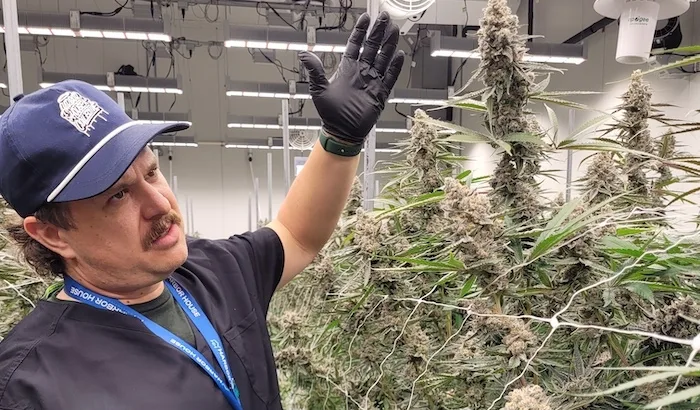
Chelsea cannabis cultivator-retailers say, “We have to keep variety on our menu. People lose their attention span real quick, so they always want to see something new.”
There aren’t enough pot shops in the Bay State that reek like weed. With a lot of cultivations sited in exurban office parks, most standalone stores lack the kind of sweet cannabis scents that smack people silly upon their entrance.
Harbor House Collective is cut differently. The Chelsea cultivation-manufacturing facility with a street-facing retail store stinks in the best way imaginable, with terpenes enticing you from outside in the parking lot and choice smells spackling your sinuses once you’re inside.
The place is cozy beyond the inviting wafts, with every cubby hole, corner, and screen filled with useful information and cannabis-related eye candy. Noticeably, their associates are fluent in weed. It’s probably because they’re here to stay; each has their own checkout area with a nameplate posting their product preferences and languages spoken.
“Consistency.” On a recent tour of the building, HHC Co-Founder and President Gabriel Londono broke down the company’s inspiration and mission. “My family comes from cut flower production and has multiple farms, and our vision and our goal is that every farm, no matter where you open a box of flowers, it should look the same.”
So at Harbor House, which he built after gutting one of his family’s flower company’s old cold storage spaces, Londono said, “Anytime we harvest here, no matter what room we’re in, we expect to see some results.”
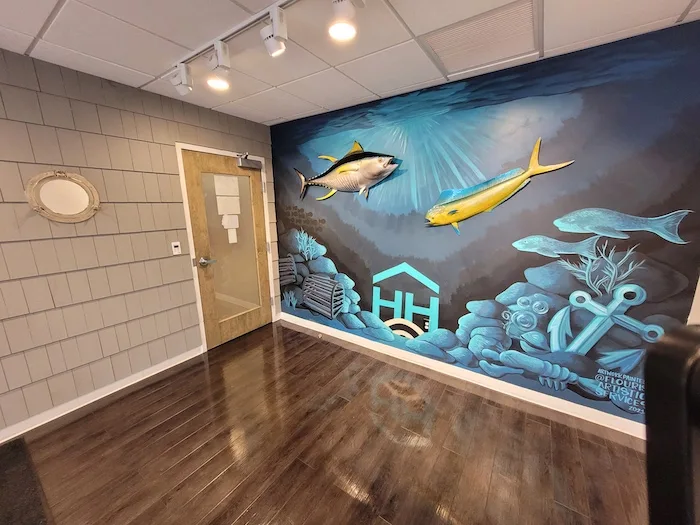
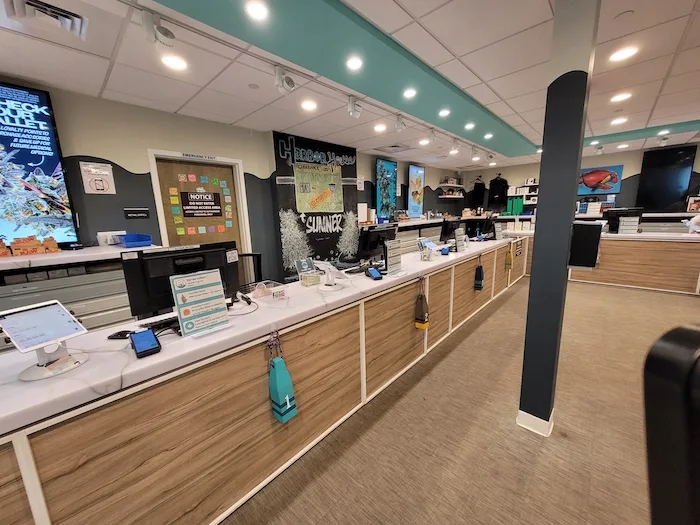
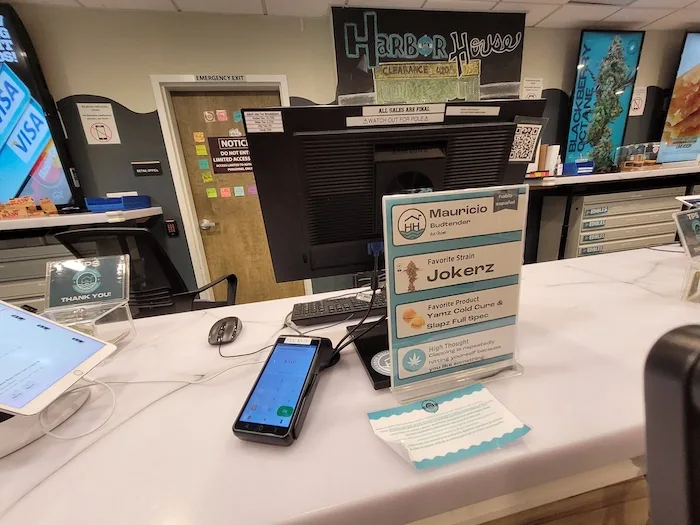
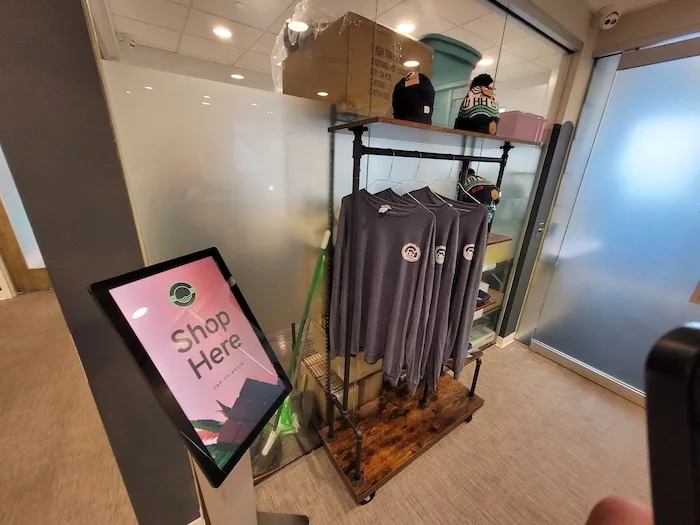
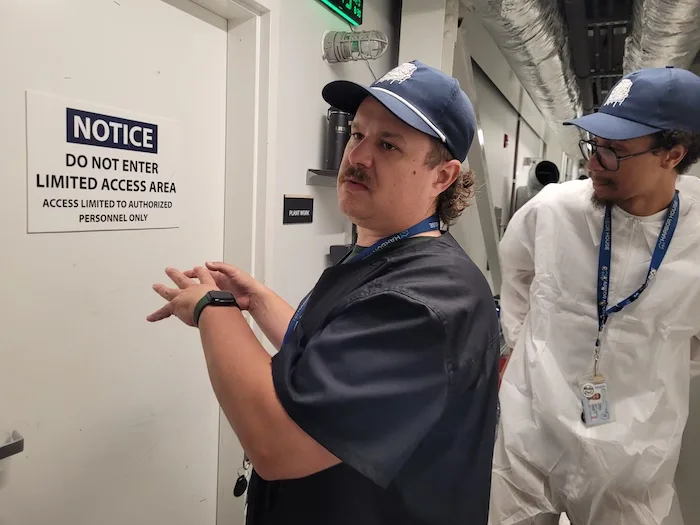
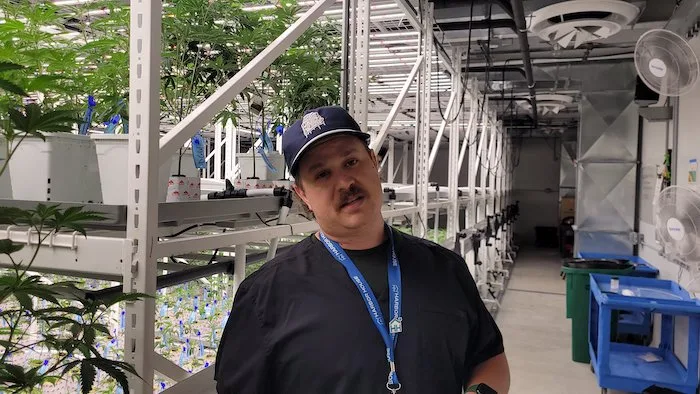
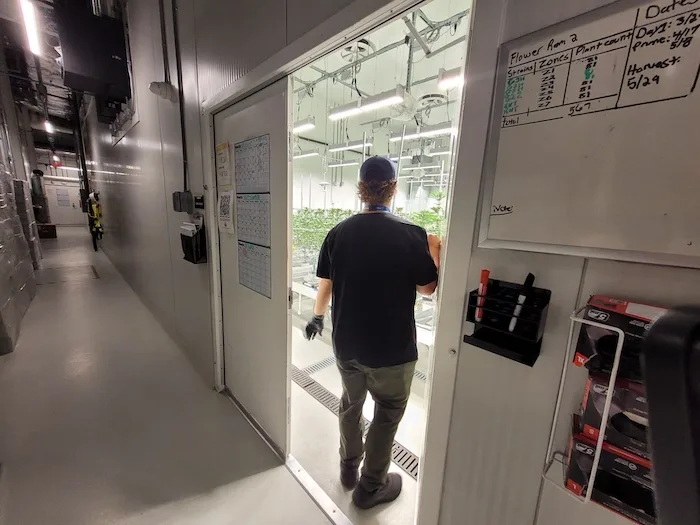
To arrive at those results, HHC Director of Cultivation Operations Cory Desloge said they aggressively hunt for “less hybridized genetics that are more landrace pure.” A veteran of other markets including Colorado and Oklahoma, on a walk through rooms blooming with iconic kind bud-style favorites like Kosher Kush and Aspen OG as well as jaw-droppingly sweet newfangled strains like Super Boof, he said the commonality among their picks is that his team knows where they come from.
“When I look at what the cross was, I don’t want to see 40 names,” Desloge said. “I want to see, like, an Afghani [crossed with] something like Purple Thai. I don’t want to see Gelato x Mr. T x fucking Tom Petty. That doesn’t tell me shit.”
HHC currently has just under 8,000 plants flowering, plus more in research and development and in their vegetation room. They cut 800 to 1,000 clones every week, and rotate through approximately 50 verified strains with a goal of harvesting five times a year. Desloge and his crew also just finished a breeding project developing in-house varieties, yielding treats like their Pawpawlado #5, a bright and banging Papaya x (Gelato #25 x Dosidos) marriage.
“I like green weed, gassy weed.” Cupping buds clinging to a Skywalker OG plant that’s just a few weeks away from curing, Desloge ogled, inhaled the residue on his glove, and said, “This one is special. I just love gas, and this is rubber terps.” At the same time, the seasoned grower said that while his personal preferences play into certain selections, he’s “not here to tell anybody what to like.”
“We have to keep variety on our menu,” the ops director said. “In this day and age, people lose their attention span real quick, so they always want to see something new.”
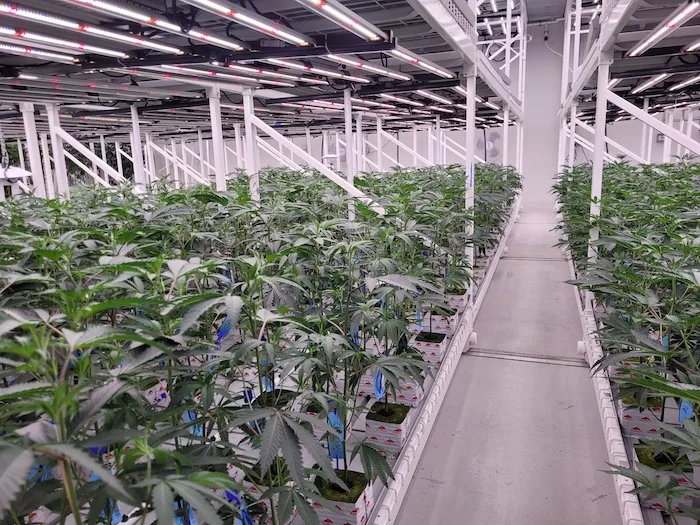
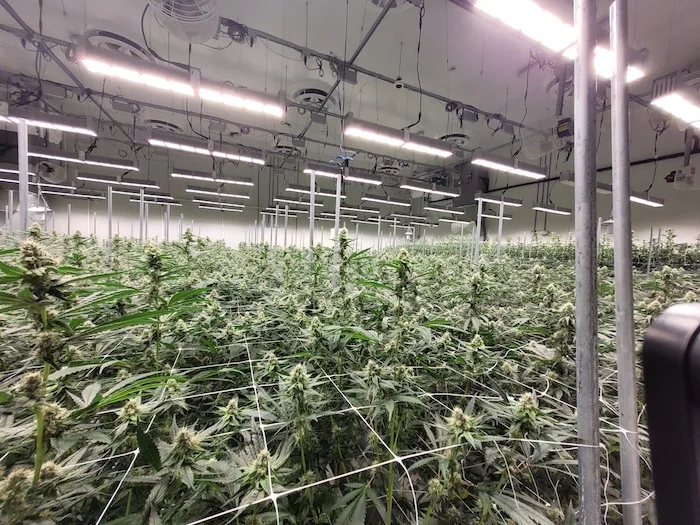
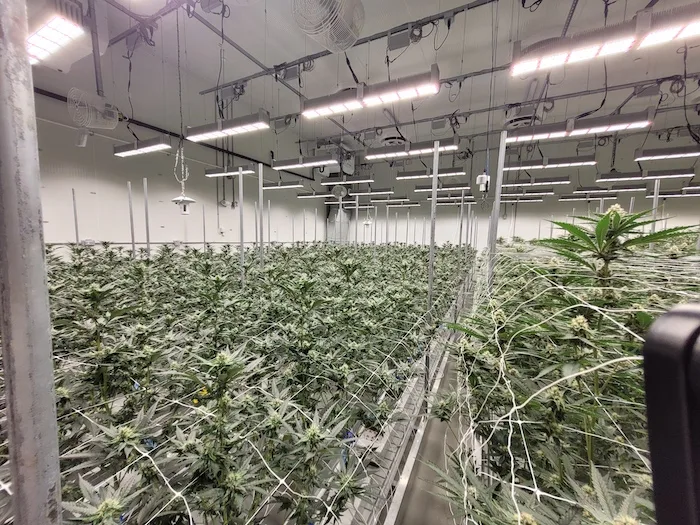
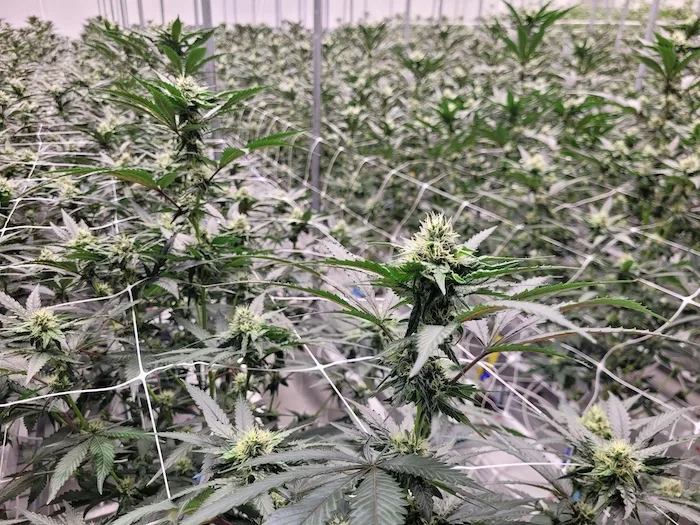
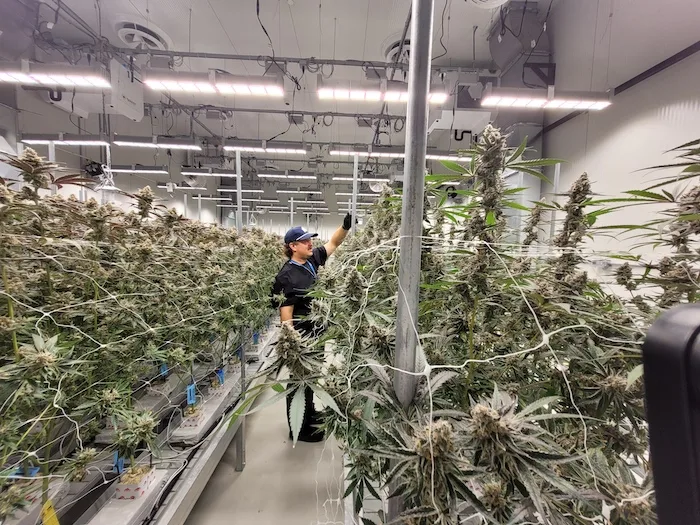
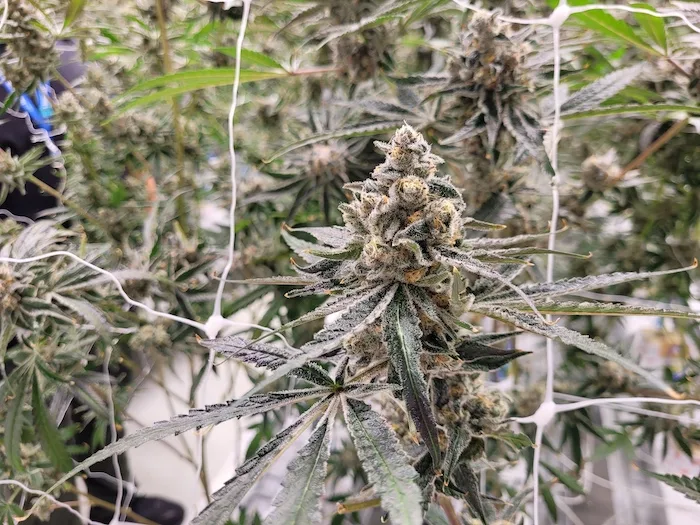
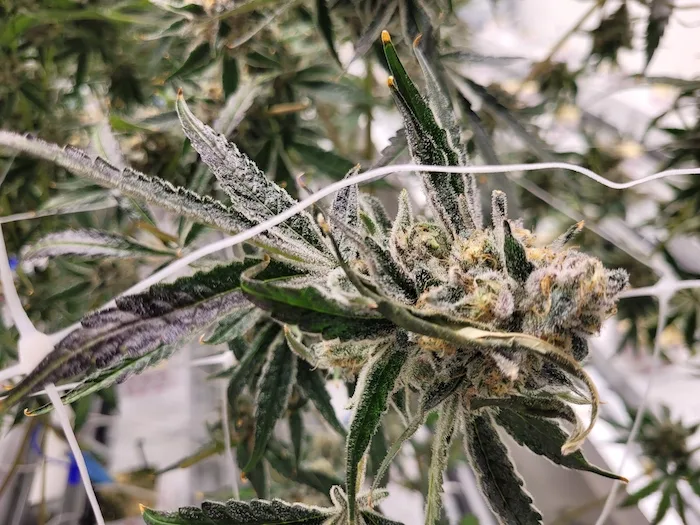
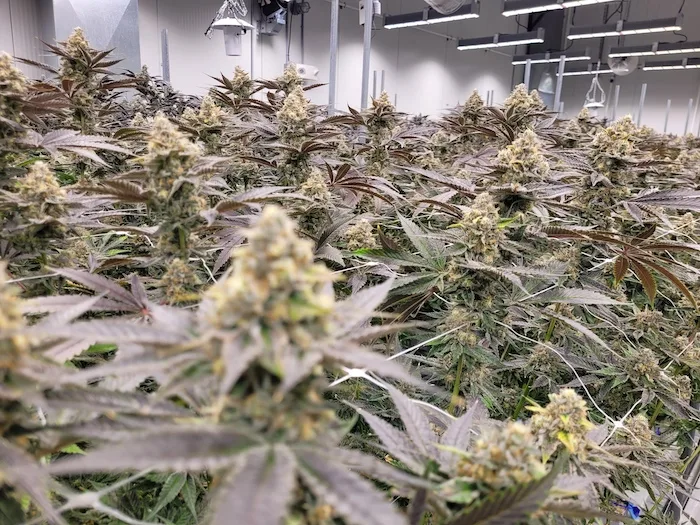
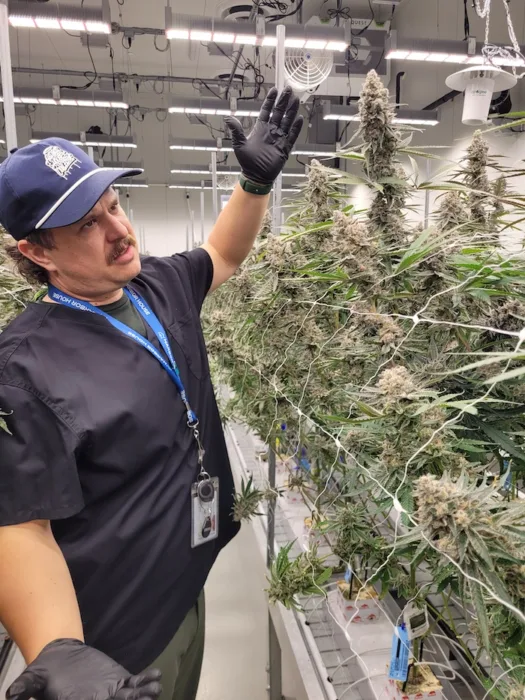
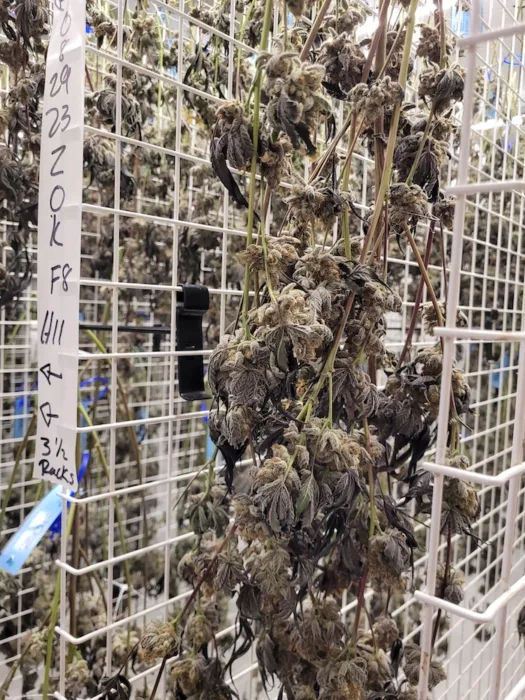
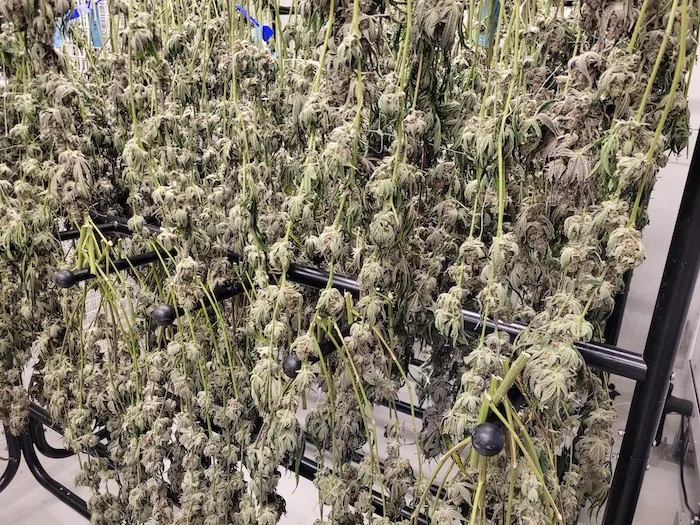
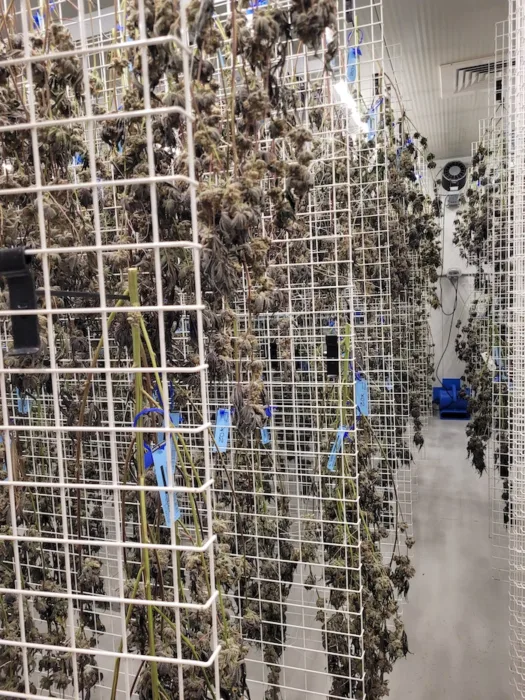
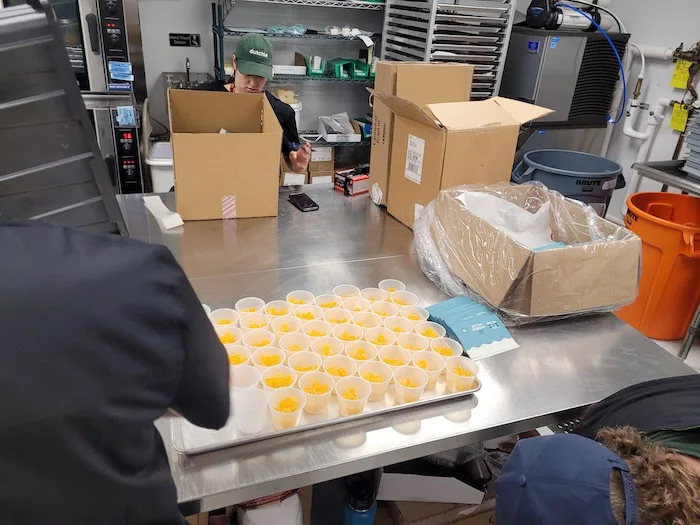
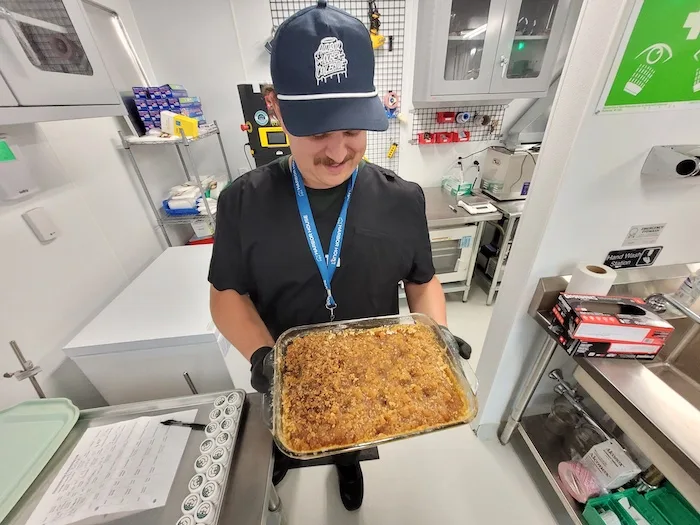
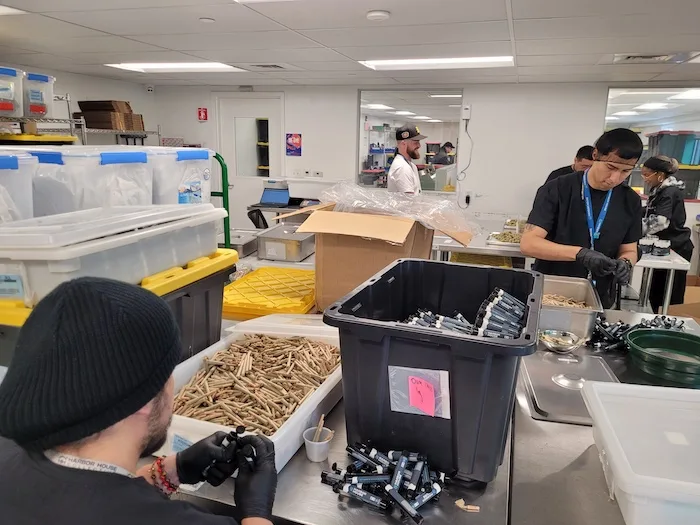
HHC has goods in shops across the state, but at the Chelsea store heads will find a particularly special smorgasbord of signature strains like Albariño and Horchata in vape, flower, or dab form—and often even in various subcategories beyond those such as badder, live rosin, and sugar. “We hold the flower to the same standard whether it’s going to dry flower or extraction,” Desloge said.
“It’s all about planning. … We have some varieties that will finish in 56 days, and then we have some varieties that will go 70 to 80 Days. … It’s all about how you plan. It’s like whiskey; some people want to have a single-year aged scotch whiskey, and some want the 12-year.”
As for the experience, planning, and technique he brings to the operation, Desloge said, “I’m trying to very minimally touch the plants. I don’t like to [trim the tops] because I don’t like open wounds.
“You don’t break your knee before you go to play a championship game and then try to dunk the ball. You gotta keep them healthy and happy and let the environment do the work.”























